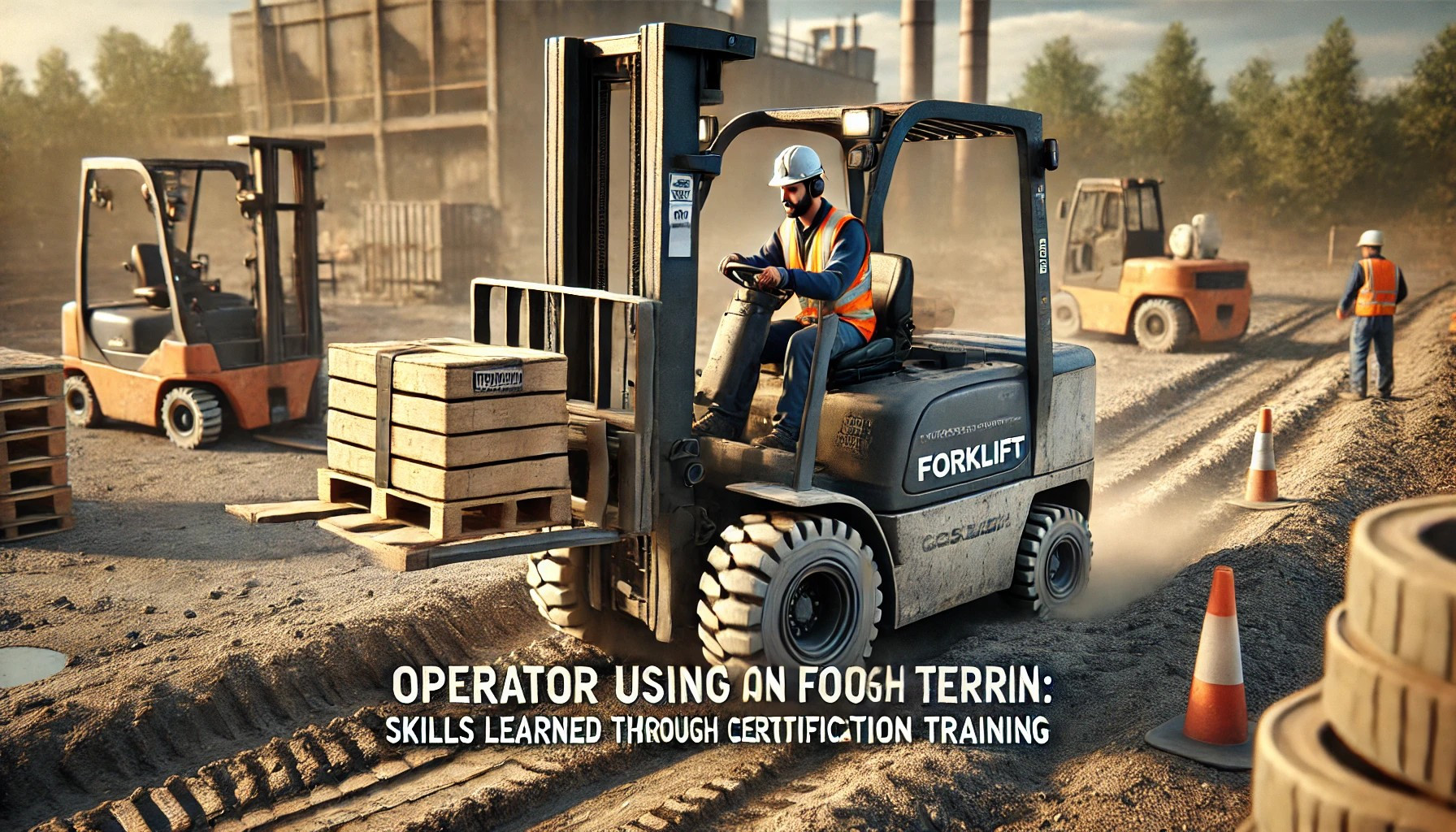Tackling Tough Terrain: Forklift Certification for Challenging Jobs
Introduction: Mastering Forklifts in Demanding Environments
Forklifts are indispensable in industries ranging from construction to warehousing, but not all forklift jobs are created equal. Handling rough terrain, steep inclines, or uneven surfaces demands advanced skills and knowledge. For operators tackling these challenging environments, proper forklift certification is not just a requirement—it’s a necessity for safety and efficiency.
At Get Drivers Ed, we offer comprehensive forklift certification courses designed to prepare operators for even the toughest jobs. In this blog, we’ll explore the importance of forklift certification for challenging terrain, what the training entails, and how it empowers operators to excel in demanding roles.
Why Forklift Certification is Crucial
1. Ensuring Workplace Safety
Operating forklifts on tough terrain presents unique hazards, including instability, reduced visibility, and unpredictable ground conditions. Certification equips operators with the skills to navigate these challenges safely, reducing the risk of accidents and injuries.
At Get Drivers Ed, our courses focus on hazard recognition and safe handling techniques tailored to rough terrain operations.
2. Meeting OSHA Standards
Employers are required to ensure that their forklift operators are certified and compliant with OSHA standards. Certification through a trusted program like Get Drivers Ed helps businesses meet these legal requirements while fostering a culture of safety.
3. Boosting Operator Confidence
Confidence is key when operating forklifts in challenging conditions. Certification provides hands-on training and practical experience, empowering operators to handle rough terrain with precision and assurance.
4. Enhancing Productivity
Skilled operators complete tasks more efficiently, even in tough environments. Certification ensures that operators understand the limitations and capabilities of their equipment, optimizing performance and minimizing downtime.
What Does Forklift Certification Cover?
1. Understanding Forklift Types
Different jobs require different forklifts. Certification includes an overview of forklift types, such as:
Rough terrain forklifts
Industrial forklifts
Telescopic forklifts
Operators learn to select the right forklift for the job, ensuring safety and efficiency.
2. Safe Operation Techniques
Our courses at Get Drivers Ed emphasize:
Proper load balancing and weight distribution
Navigating steep inclines and declines
Maneuvering on uneven or slippery surfaces
Maintaining visibility and situational awareness
3. Hazard Identification
Operators are trained to recognize and mitigate common hazards in challenging environments, such as:
Loose gravel or mud
Obstructions and tight spaces
Weather-related risks
4. Equipment Inspection and Maintenance
Certification includes instruction on pre-operation inspections and routine maintenance, ensuring forklifts are in safe working condition.
5. Emergency Procedures
Operators are prepared for unexpected situations, such as equipment malfunctions or load instability, with clear protocols for minimizing risk.
The Benefits of Forklift Certification
1. Safer Work Environments
Certified operators are better equipped to handle the complexities of rough terrain, reducing the likelihood of accidents and injuries.
2. Increased Productivity
Certification ensures that operators are efficient and confident, completing tasks quickly and accurately, even in challenging conditions.
3. Cost Savings
Fewer accidents and reduced equipment damage mean lower costs for businesses, making certification a smart investment.
4. Career Advancement Opportunities
Certification demonstrates professionalism and expertise, opening doors to specialized roles and higher-paying positions.
Why Choose Get Drivers Ed for Forklift Certification?
At Get Drivers Ed, we understand the demands of challenging forklift jobs and are committed to providing top-quality training tailored to your needs. Here’s what sets our program apart:
Comprehensive Curriculum: Covering everything from basic operation to advanced techniques for rough terrain.
OSHA Compliance: Our courses meet all regulatory standards, ensuring legal compliance.
Flexible Learning Options: Study at your own pace with our user-friendly online platform.
Interactive Tools: Engaging videos, quizzes, and real-world scenarios enhance understanding.
Experienced Instructors: Learn from professionals who bring real-world expertise to the training process.
Tips for Operating Forklifts on Tough Terrain
Perform Pre-Operation Inspections: Check tires, brakes, and fluid levels before every use.
Adjust Speed Accordingly: Drive slowly and cautiously on uneven surfaces to maintain stability.
Maintain Proper Visibility: Use mirrors and spotters when necessary to navigate tight spaces.
Distribute Loads Evenly: Ensure loads are properly balanced to prevent tipping.
Practice Defensive Driving: Anticipate potential hazards and stay alert to your surroundings.
Conclusion: Elevate Your Skills with Get Drivers Ed
Forklift certification is more than just a regulatory requirement—it’s a vital step in ensuring safety, efficiency, and confidence on the job. For operators facing the unique challenges of rough terrain, proper training is essential to mastering their equipment and excelling in demanding roles.
At Get Drivers Ed, we make forklift certification accessible and effective, providing operators with the tools they need to tackle tough terrain with confidence.
Ready to take the next step? Visit Get Drivers Ed today to enroll in our forklift certification program. Let’s work together to elevate your skills and set the foundation for a safer, more productive workplace!


